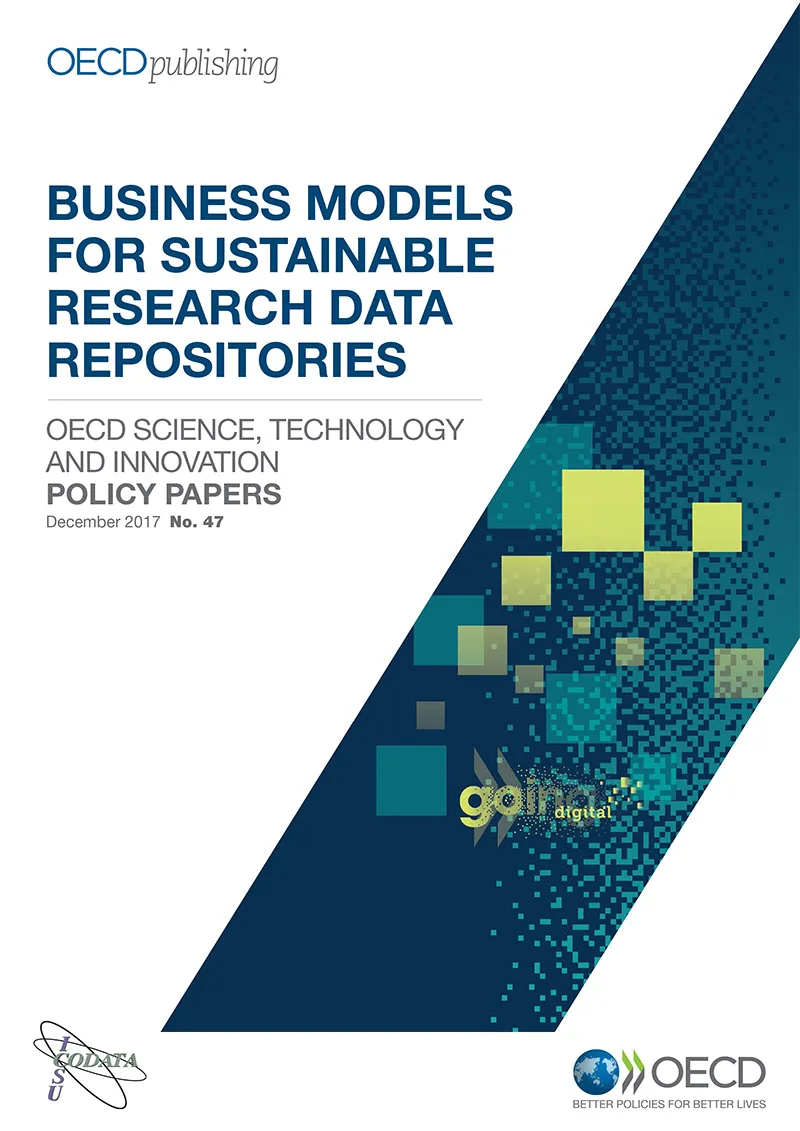Today the OECD Global Science Forum has released a new report on Business Models for Sustainable Research Data Repositories.
Today the OECD Global Science Forum has released a new report on Business Models for Sustainable Research Data Repositories, available on the OECD iLibrary (http://dx.doi.org/10.1787/302b12bb-en)
This report is the culmination of two years of work by the OECD-CODATA's high-level expert group. The group includes DRI's Director Natalie Harrower, and is chaired by CODATA's Executive Director Simon Hodson and DANS' Deputy Director Ingrid Dillo. To prepare the recommendations, which are aimed at policy-makers, the group conducted in-depth surveys with a wide range of research data repositories from different domains across the globe, as well as extensive workshops and consultations with a range of stakeholders.
The publication is a contribution to the OECD #GoingDigital project, which aims to provide policymakers with the tools they need to help their economies and societies prosper in an increasingly digital and data-driven world. Its findings are relevant to governments, organisations, and funders involved in the areas of open science, open research, open data, research data management (RDM), digital preservation, business models, repositories, and sustainability.
The report makes the following recommendations:
|
Recommendation 1: All stakeholders should recognise that research data repositories are an essential part of the infrastructure for open science. Research data repositories provide for the long-term stewardship of research data, thus enabling verification of findings and the re-use of data. They bring considerable economic, scientific, and social benefits. Hence, it is important to ensure the sustainability of research data repositories. Sustainability depends, inter alia, on a clearly articulated value proposition and the development of a “business model” (See Recommendation 2).
Recommendation 2: All research data repositories should have a clearly articulated business model. Actions needed to develop and maintain a successful business model include (Figure ES.1):
Because the context is dynamic, these actions should be revisited regularly throughout a data repository's lifecycle.
Recommendation 3: Policy makers, research funders, and other stakeholders need to consider the ways in which data repositories are funded, and the advantages and disadvantages of various business models in different circumstances. It is important to consider what system of allocation will best ensure that the optimal level of funding will be made available for research data repositories. For example:
Project funding often provides a mechanism to test the need for a data repository and the initial capacity to create one. However, as the repository matures and scales to provide an ongoing, reliable and quality service, a different funding model is likely to be needed.
Research data repository costs will change over time. As the global data repository infrastructure evolves there will be increasing learning and scale economies, which have the potential to reduce repository costs, although this needs to be balanced against increased data flows.
Recommendation 4: Research data repository business models are constrained by, and need to be aligned with, policy regulation (mandates) and incentives (including funding).
Recommendation 5: In the context of financial sustainability, opportunities for cost optimisation should be explored in order to be able to effectively manage digital assets over time. Therefore, policy makers, research funders, and repository managers should:
− By encouraging or funding the establishment of lead organisations for open research data at the national level, and encouraging those organisations to collaborate globally. By encouraging or funding collaboration and federation. Not all research data repositories need to perform specialised curation and preservation tasks. Similarly, not all institutions or organisations need to create individual repositories. Collaboration and federation can help to manage and reduce costs.
|






